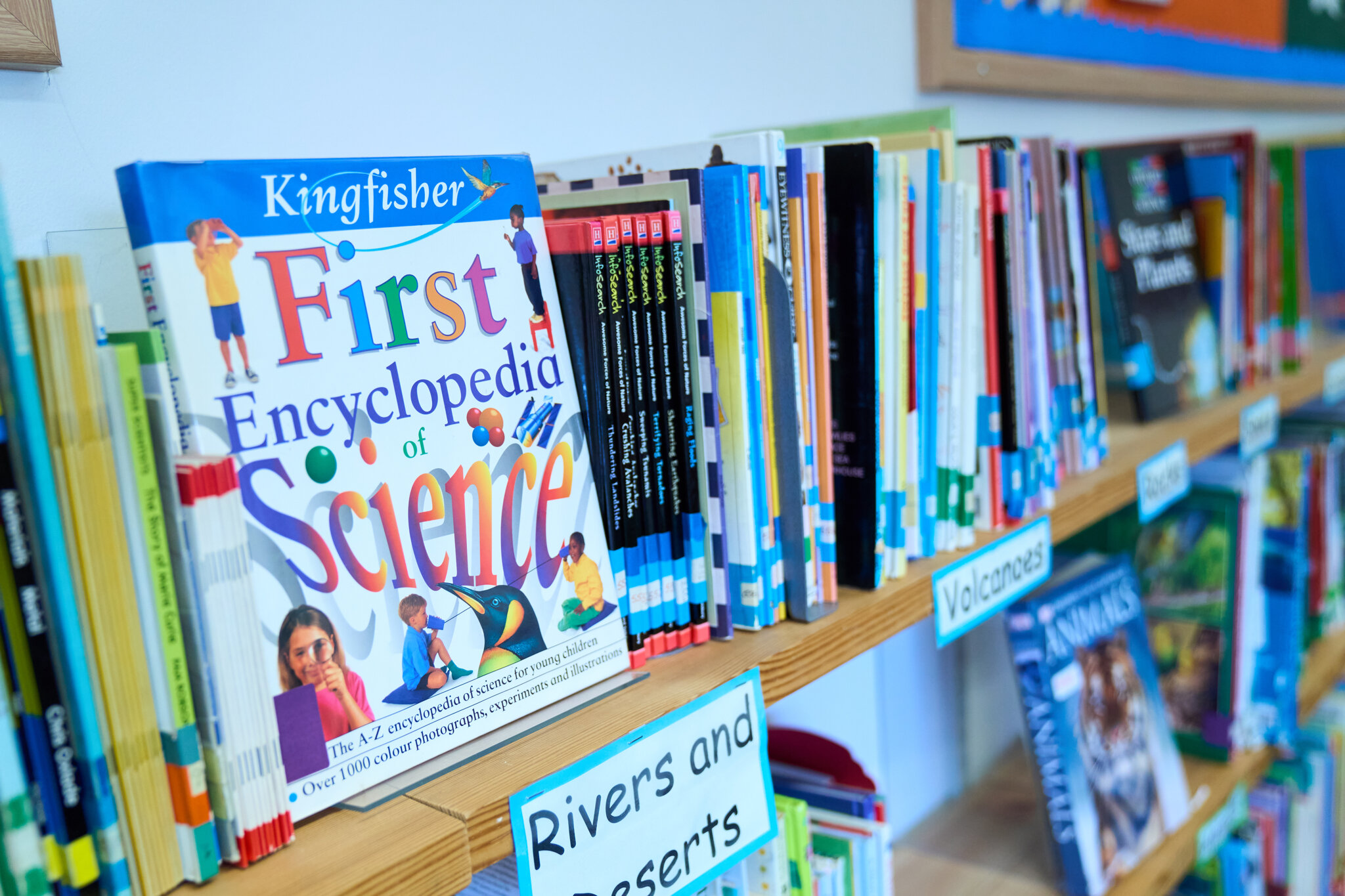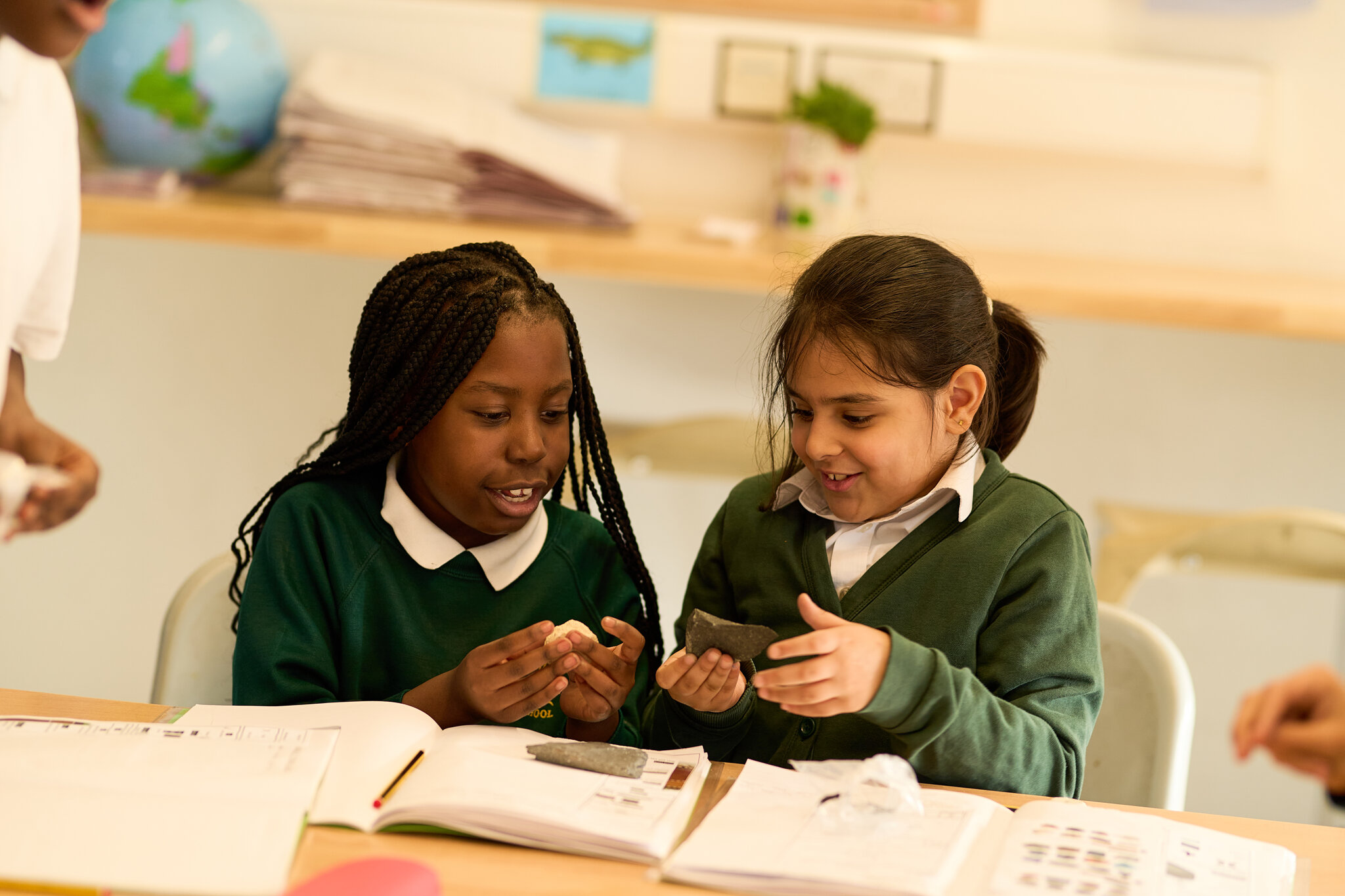Science
At Rushey Green, the holistic development of our students is essential to our school ethos. The Science curriculum demonstrates this by honing critical thinking skills while supporting curiosity and the healthy development of young minds. We believe science is around us, the acquisition of knowledge, concepts and skills all help to produce life-long learners with positive attitudes. We ensure that the Working Scientifically skills are built-on and developed throughout children’s time at the school. They can apply their knowledge of science when using equipment, conducting experiments, building arguments and explaining concepts confidently. We continue to see science as a life-skill because our ever changing climate is going to need these skills for future solutions to already existing problems.
Teachers help to create a positive attitude to science learning within their classrooms and reinforce an expectation that all pupils are capable of achieving high standards in science. Fun, engaging and high-quality science lessons.
.jpg)

Aims:
The national curriculum for science aims to ensure that all pupils:
- Develop scientific knowledge and conceptual understanding through the specific disciplines of biology, chemistry and physics.
- Develop understanding of the nature, processes and methods of science through different types of science enquiries that help them to answer scientific questions about the world around them.
- To equip students with the scientific knowledge required to understand the uses and implications of science, today and for the future.
We apply our ‘Working Scientifically skills’ to solve problems, explore, observe and investigate. We ask questions and work together to discover the answers. We motivate our children to generate a sense of wonderment in their learning. Our learning is enhanced by outdoor learning and the use of quality resources. We are involved in creating and carrying out investigations and can share and explain our ideas and conclusions.
.jpg)

.jpg)
.jpg)
To accomplish our desired outcomes in science, we use the CUSP curriculum in all year groups, apart from Early Years. Knowledge notes are used as a tool to help children summarise lessons, while also embedding specific vocabulary over a taught unit. Students are taught to use knowledge notes at the beginning of each year, and use them consistently to recall information within lessons.
Additionally, students are given short quizzes after each lesson to summarise their learning, which requires them to use their knowledge notes and lesson notes to complete. In doing this, students are made aware of the key takeaways of each lesson.
The CUSP curriculum allows students to work in a variety of ways, including hands-on activities, which allows them to put into practice what they have learned. For example, when learning about natural disasters in geography, year 6 students had the opportunity to learn about volcanoes in the classroom using knowledge notes, but later, took their learning outside and created volcanoes of their own. In doing this, students were able to further enquire and ask questions about their prior knowledge.
‘Talk it out’ Is a programme where children develop a deeper understanding of their learning while developing oratory skills. It is one of the future aspirations for our children and a way of developing our ideas through communication. The children not only can explain the science behind their understanding but also use technical language and detailed explanations.
Hands-on discussions and explanations of the digestive system:
After hands-on tasks, pupils are able to produce a high standard of work in their books. Vocabulary is added through direct teaching due to its high importance. We use this ‘stem’ learning as part of our assessment of children’s learning.
Pupils' voice is extremely important in Science and part of our assessment pupils discuss their learning to reveal the depth of their understanding of the topic being taught.
Rushey Green strives to meet and exceed the needs of all our children by differentiating with our science planning and in providing a variety of approaches and tasks appropriate to ability levels.
We make sure that this planning is inclusive also to children with learning and/or physical difficulties, helping them actively participate in scientific learning and practical activities and investigations and to achieve their goals.
Understanding that some children will require closer supervision and more adult support to allow them to progress whilst more able children will be extended through differentiated activities.
By being given enhancing and enriching activities, more able children will be able to progress to a higher level of knowledge and understanding appropriate to their abilities.
.png)